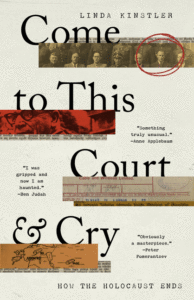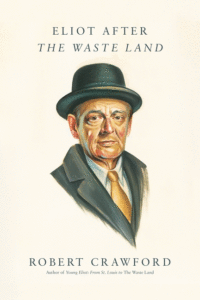
Abdulrazak Gurnah’s Afterlives, Emma Donoghue’s Haven, and Andrew Nagorski’s Saving Freud all feature among the Best Reviewed Books of the Month.
1. Afterlives by Abdulrazak Gurnah
(Riverhead)
10 Rave • 5 Positive
Read an excerpt from Afterlives here
“Afterlives covers decades in the lives of its three main characters, Khalifa, Afiya and Ilyas. They each experience various kinds of deprivation, salvation and injustice in the aftermath of colonialist brutality. The novel also hews close to some of the German occupiers. It would be easy to make them caricatures … But Gurnah not only holds himself back from lampooning the Germans, he also makes sure we see how desirable their station could seem to the young men who made up their Schutztruppe … Gurnah brings all these afterlives to a closure simultaneously ripe with meaning and rotten with evil … Gurnah…sees in all directions at once. He constructs his latest magnificent novel so clearly and carefully that when his very last lines bring us back to love and kindness, we’re ready to pay attention.”
–Bethanne Patrick (The Los Angeles Times)
2. Haven by Emma Donoghue
(Little Brown and Company)
3 Rave • 7 Positive
“Throughout the novel Donoghue provides detailed descriptions of the natural world and the world of work: how vellum and quills are made, how an altar, a cross, a hut is built, how Cormac makes compost and grows a tiny garden, how Trian baits his line and fishes, how birds are caught and cleaned and cooked…It’s clear that Donoghue did her research and these passages will be of great interest to those who love this type of historical detail…Reading about the birds and dolphins in huge crowds, the great Auks (long extinct), and the contrast between Tristan’s regret and the Prior’s arrogance, I saw a distinct symbol of our broader arrogance in the destruction of our natural environment…This is a powerful read with careful attention paid to balancing natural and historical detail with a broader exploration of faith, madness, survival, and what it means to be human.”
–Yvonne C. Garrett (The Brooklyn Rail)
3. Perish by LaToya Watkins
(Tiny Reparations Books)
5 Rave
“Searing … Watkins elucidates the complex fallout from Wayne’s birth by moving back and forth through time and introducing the perspectives of other family members … Watkins deftly captures the fresh cadence of January’s voice … As Watkins details the violation of the children in this family, shows the reverberating impact these acts have, and makes the reader empathize with each authentic, distinctive character, Perish can be a stomach-churning read. It’s a raw but necessary book … Watkins has shaken off the shame of the ultimate taboo and brought it to light through the story of the unforgettable women who bear its burden. This novel will serve as a hand extended through the darkness to a great many of its readers.”
–Jenny Shank (The Star Tribune)
**

1. Come to This Court and Cry: How the Holocaust Ends by Linda Kinstler
(Public Affairs)
4 Rave • 2 Positive
“Intelligent and thoughtful … What gives Kinstler’s story its charge is not so much the horrific saga of the Arājs Kommando, or the relatively unknown Israeli operation to take the law into their own hands, but the almost Kafkaesque quality of Latvian public memory … Come to This Court and Cry is not the only recent book to cover this subject. Stephen Talty tells the Mossad story as a fast-paced thriller in The Good Assassin (2020). Linda Kinstler is more reflective about the issues. It makes for a less straightforward narrative, but also for a more searching read. Men like Cukurs still have plenty of admirers, and the passing of time seems not to be clarifying the moral stakes of history, but obscuring them further.”
–Mark Mazower (Times Literary Supplement)

2. Eliot After The Waste Land by Robert Crawford
(Farrar, Straus and Giroux)
4 Rave • 1 Positive • 1 Mixed
“… authoritative … After completing a two-volume biography, Crawford continues his meticulous, perceptive examination of the life and work of T.S. Eliot … a finely detailed chronicle of the poet’s last four decades … Exemplary literary scholarship.”
–Kirkus
3. Saving Freud: The Rescuers Who Brought Him to Freedom by Andrew Nagorski
(Simon & Schuster)
3 Rave • 1 Positive
“Andrew Nagorski spikes his thriller with truly terrifying notes…Shortly before the dash for freedom, two of Freud’s children, Anna and Martin, were questioned by the Gestapo…They had taken the precaution of asking Schur for a deadly barbiturate to take if torture ensued…Moreover, four of Freud’s elderly sisters stayed in Austria; three perished in Treblinka, while the fourth starved to death…At the end of this otherwise excellent book we are still left pondering how Freud himself, whose work was all about facing up to the unpleasant realities of human life, could carry on believing for so long that he alone could give History the slip…A gripping account of how colleagues and admirers spirited the psychoanalyst from Nazi-controlled Vienna to London.”
–Kathryn Hughes (The Guardian)

